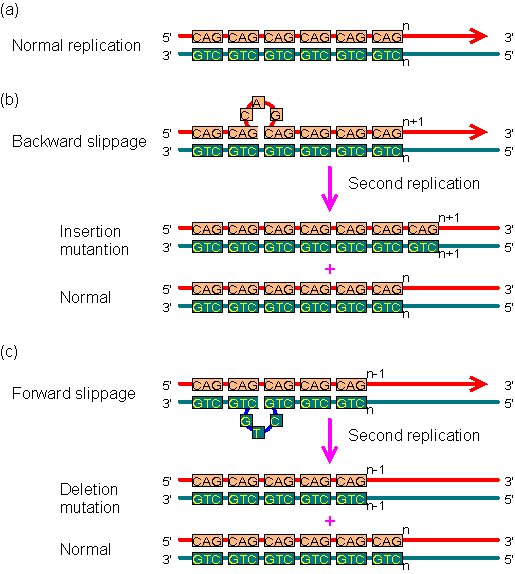(Close this window manually when finished viewing)
Mutation by Replication Errors
[adapted from <http://www.web-books.com/MoBio/Free/Ch7F3.htm>]
Replication errors are the main source of mutations. A commonly observed error is replication slippage, which occurs at the repetitive sequences when the new strand mispairs with the template strand. Microsatellite polymorphism (i.e., differences in markers among lines of individuals with a common ancestor) is mainly caused by replication slippage. If the mutation occurs in a coding region, it could produce abnormal proteins, leading to diseases. The Huntington's disease is a well known example. However, YDNA markers are sequences of short-tandem repeats – "junk" DNA whose alteration causes no harmful effects to the individual.
In the Figure below, mispairing involves only one repeat (i.e., a change in marker value of one allele). In fact, slippage could cause several repeats to become unpaired. The following three events are depicted: (a) Normal replication. (b) Backward slippage, resulting in an insertion mutation. (c) Forward slippage, resulting in a deletion mutation. In each case, the 'parent' or template sequence is shown in green, with the 'offspring' sequence in orange.
(Close this window manually when finished viewing)
